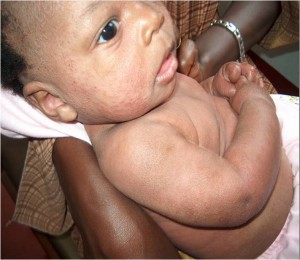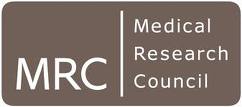Worms and allergy
 The most striking result of the trial was that treatment of worms during pregnancy resulted in increased rates of eczema in the children (Mpairwe et al 2011). This result fits in with the “Hygiene Hypothesis” which proposes that infections, including worm infections, influence the human immune response, protecting from the excessive inflammation that causes allergy (and other diseases such as inflammatory bowel disease and type I diabetes).
The most striking result of the trial was that treatment of worms during pregnancy resulted in increased rates of eczema in the children (Mpairwe et al 2011). This result fits in with the “Hygiene Hypothesis” which proposes that infections, including worm infections, influence the human immune response, protecting from the excessive inflammation that causes allergy (and other diseases such as inflammatory bowel disease and type I diabetes).
We also found that the presence of maternal hookworm protects against the effects of risk factors that are important in other settings. If the mother has hookworm, then a family history of eczema, or evidence of “atopy” (positive responses to allergen skin prick tests, or IgE to allergens in the blood) is no longer associated with increased risk of eczema in the child (Mpairwe et al, 2014).
We are following up the children now to see whether these effects persist later in life (Protocol).



